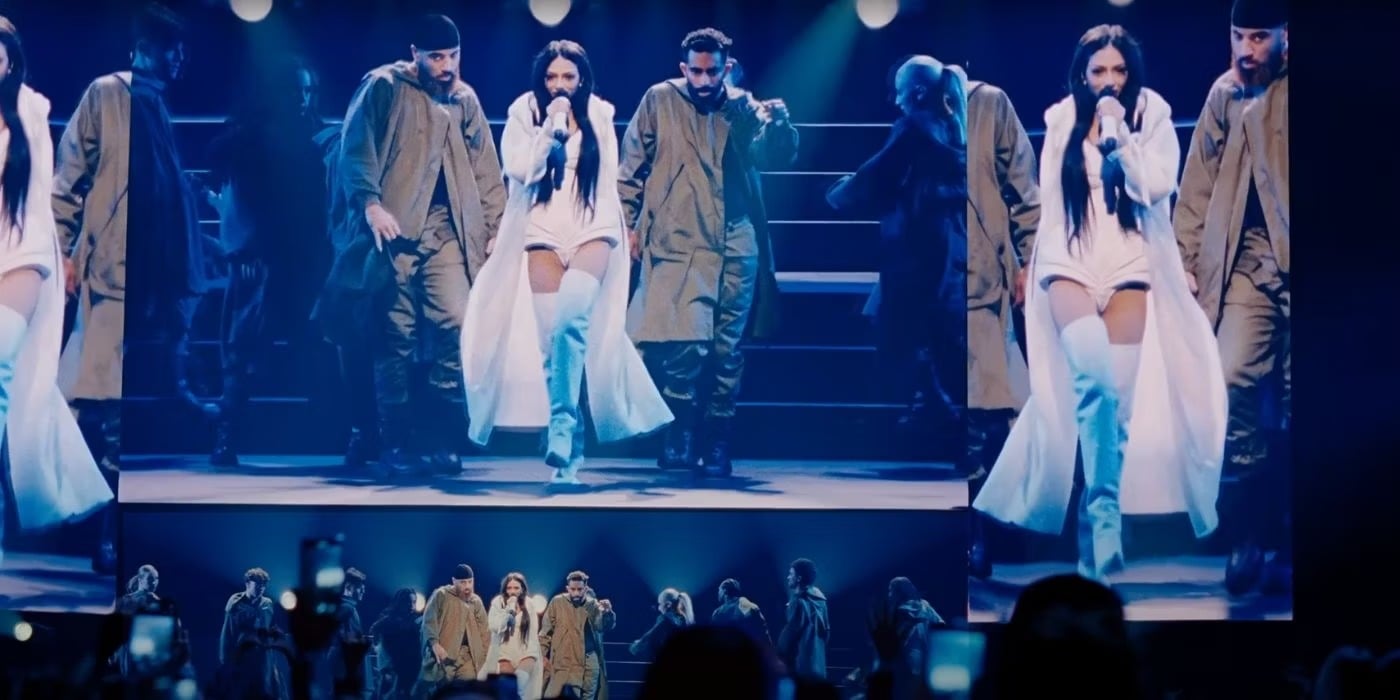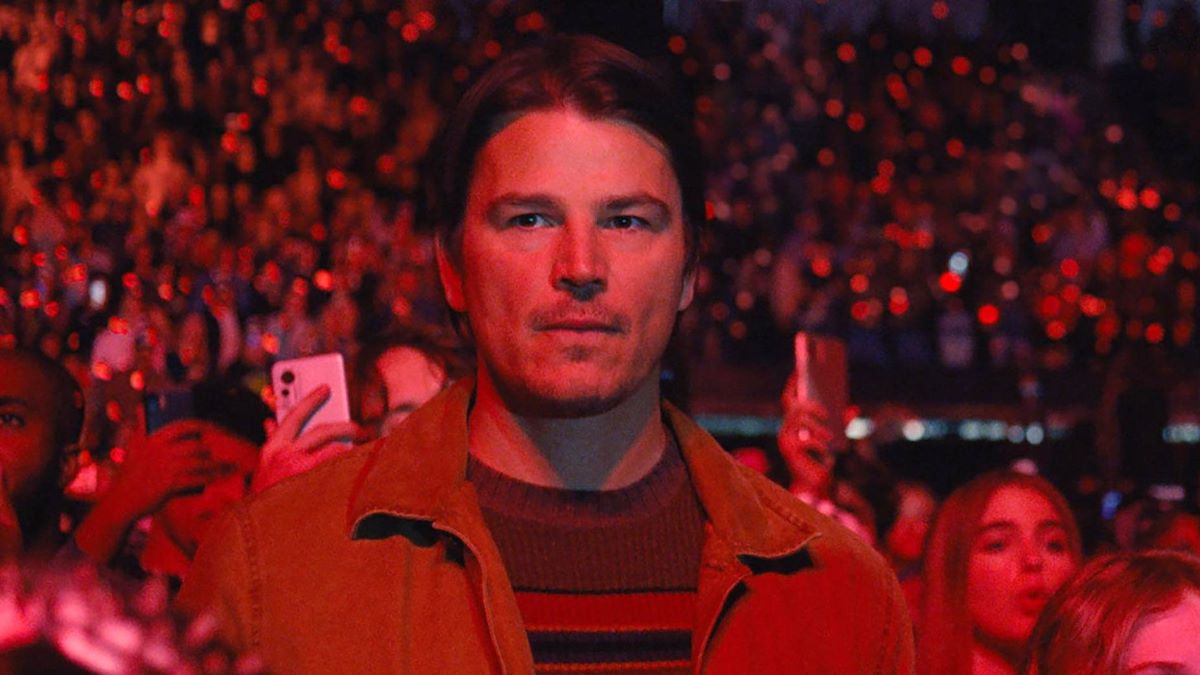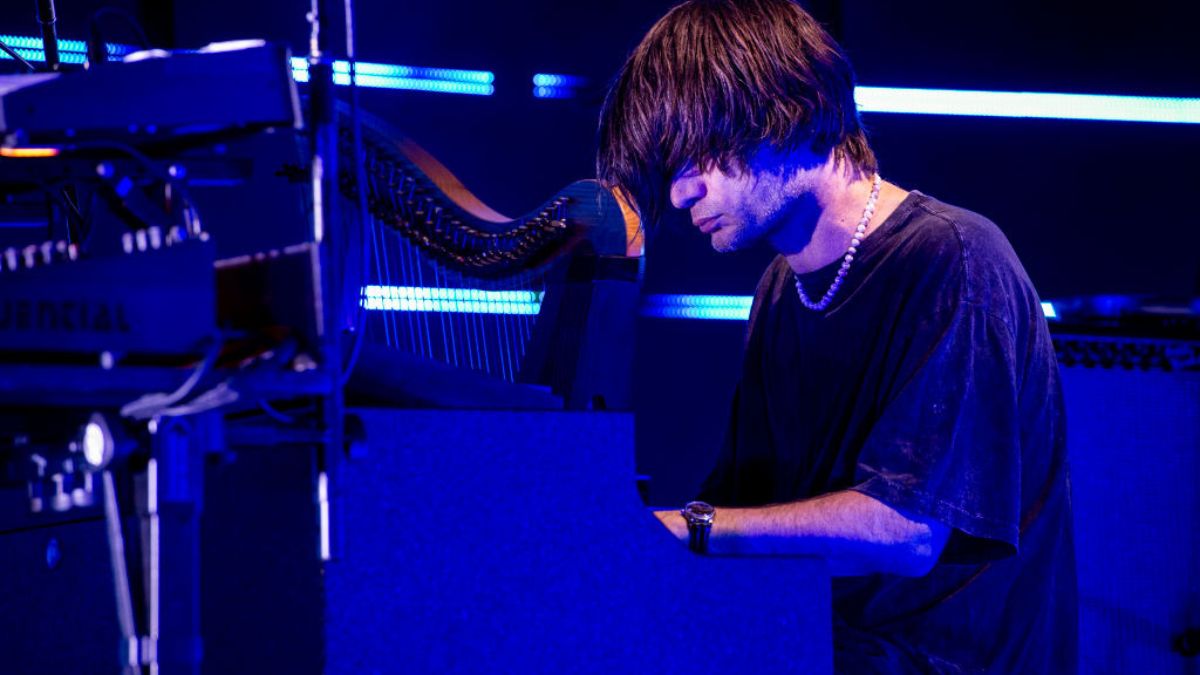If there’s any major filmmaker who needs a win right now, it’s M. Night Shyamalan. For roughly two decades, Shyamalan has been on a streak of mediocrity that’s well and truly painful to witness. We know he can deliver the goods, and even now he’s one of the few directors who can consistently pull a big audience without the extra boon of a major IP or being James Cameron.
A good movie is always a win for everyone involved (and that includes audiences), but that truth is taken to extra special heights when that movie comes at the hands of Shyamalan. Trap is that movie. Shyamalan has found a way to turn his usual weaknesses into strengths, and while the seams start to buckle near the end, Trap‘s wealth of victories (among them a sensational turn from Josh Hartnett) make it stand tall as a crowd-pleasing thriller, a genre exercise, and, most importantly, a Shyamalan film in the form we know they’re capable of taking.
Hartnett stars as Cooper, a loving father and family man who brings his teenage daughter Riley (Ariel Donoghue) to an indoor concert put on by her idol, pop star Lady Raven (portrayed by Saleka Shyamalan, the filmmaker’s daughter). But beneath that paternal facade, Cooper is secretly a horrifying serial killer known as “The Butcher.”
When they arrive at the concert, Cooper notices a suspicious police presence at the event; a police presence that eventually turns into an FBI presence. Realizing the concert has been rigged to trap and capture him, Cooper endeavors to escape the concert with Riley, and perhaps escape a few other things, too.

Even Shyamalan’s weakest entries don’t call his raw presentational ability into question, and with a space as claustrophobically cinematic as a packed concert venue, Shyamalan’s direction takes especially invigorating flight here. His penchant for close-up POV shots is given an extra heft by Trap‘s setting, and the way he frames, cuts, and contrasts Cooper’s simmering psychological state with his oft-busy surroundings is nothing short of fascinating.
To that point, it’s still abundantly clear that Shyamalan needs a screenwriter, because Trap‘s dialogue is jarring, unnatural, and occasionally utterly senseless. And yet, the setting and the procedural context of Trap offer this otherwise weak dialogue a curious place in the film. Trap isn’t telling a story in the purest sense so much as it’s a puzzle that we all observe as it solves itself, and since we as an audience aren’t exactly cheering for Cooper, the movie preemptively promises that it isn’t rooting this story in emotion, and that’s a promise that it mostly keeps throughout.
The dialogue, therefore, need not hook us; it can get away with being mechanical and awkward. Furthermore, the manner in which this dialogue is delivered plays into Trap‘s narrative tension to great effect. The discomfort we already feel from the many shoes waiting to drop is only bolstered by how wrong the dialogue seems.
And with the blow of Trap‘s dialogue softened so brilliantly, Hartnett has free reign to bring Cooper to life. In a purely physical sense, Hartnett is in top form here: Cooper frequently shifts between his two shades, sometimes suddenly and other times gradually, and Hartnett navigates it with subtle dynamism. Hartnett is at his peak when his mask comes off in full, capturing a perverted blend of sadism, desperation, and mirth-because-he-really-needs-this-to-be-funny in a grin that has the makings to become truly iconic.
But the most fascinating aspect of Trap is the way that Shyamalan uses Shyamalan; that is, how M. Night employs his daughter Saleka as both an artist in her own right and as a character in the film. Saleka, a singer-songwriter, plays Lady Raven and wrote original music specifically for Trap, which she physically performs many times throughout the film. The technical and collaborative nuances of this are interesting enough, but it goes far beyond that.

For one, the way Shyamalan uses Lady Raven’s musical performances to evoke a sense of limited opportunity/time (Cooper can largely only work on his escape when he’s not with his daughter, and he can only really not be with his daughter if Lady Raven is performing. Plus, the concert gets closer to finishing with every passing song) is utterly superb. Narratively speaking, the juxtaposition of Cooper and Lady Raven invites us to consider how these two characters are operating in this particular, horror-adjacent genre space; Lady Raven is a celebrity with legions of (very) loyal fans, whereas Cooper is shown to have a rather popular following in his own right.
Both have immense power as individuals, but whereas Lady Raven is living very fully and authentically and is bolstered by the cellphone-centric era she lives in, Cooper is suppressing the ultimate darkness, and can’t get away with his impulses as easily as the killers of the 70s and 80s could. Riley also loves them both immensely.
Lady Raven as a character is also given quite a lot to do in the film, and so this abstract matchup becomes even less abstract as time goes on. Unfortunately, the start of Lady Raven’s deeper involvement comes right around the time that Trap transitions into its final stretch of proceedings, which is where the film’s problems begin to roll in quite severely.
For one, Shyamalan begins to get pretty generous about the logic behind Cooper’s evasion of police; this kneecaps the tension and gets us to a place where we’re no longer interested in the “how,” but instead in getting to the note that Trap will ultimately end on. And if you’ll recall, that tension was the effectively the only thing keeping the dialogue from being entirely awful. It helps that we dive into the finer complexities of Cooper’s character here, and the mileage of that complexity should not be written off, but Trap‘s last act proves that Shyamalan still hasn’t escaped his creative limitations.
And yet, setting yourself up in a way that makes your weaknesses creatively nutritious rather than overcoming them might just be the biggest stroke of distinctly Shyamalan genius yet. Trap is at once proof in the pudding that Shyamalan is as top-notch a filmmaker as he’s always been; he can frame a story like no other, he can get the absolute best out of his actors, he’s constantly forging a path in Hollywood that’s all his own, and this time, the film as a whole is exemplary of his capabilities.
Indeed, Trap is the return to form for Shyamalan that we’ve all been waiting for (critics were far, far too kind about Knock at the Cabin), and while we’re all still going to be pleading with Shyamalan to find a screenwriter to collaborate with in the future, this is an accomplishment worth whooping for.











Published: Aug 2, 2024 03:51 am